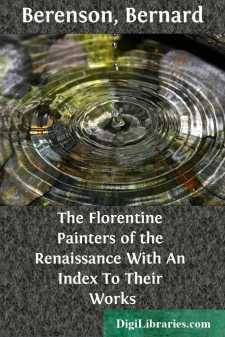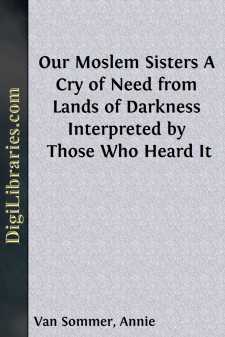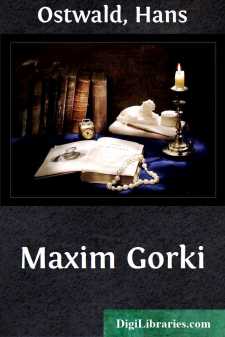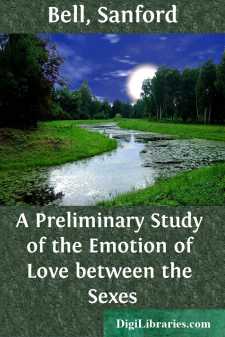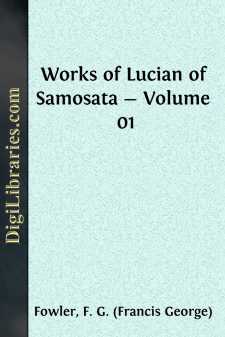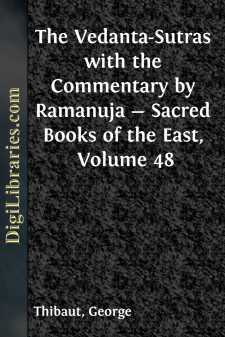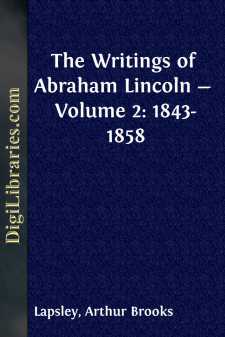Non-Classifiable
- Non-Classifiable 1768
Non-Classifiable Books
Sort by:
by:
John MacGregor
CHAPTER I. Project—On the stocks—Profile—Afloat alone—Smart lads—Swinging—Anchors—Happy boys—Sea reach—Good looks—Peep below—Important trifles—In the well—Chart—Watch on deck—Eating an egg—Storm sail. It was a strange and pleasant life for me all the summer, sailing entirely alone by sea and river fifteen hundred miles, and with its toils, perils, and adventures heartily...
more...
by:
Bernard Berenson
I. Florentine painting between Giotto and Michelangelo contains the names of such artists as Orcagna, Masaccio, Fra Filippo, Pollaiuolo, Verrocchio, Leonardo, and Botticelli. Put beside these the greatest names in Venetian art, the Vivarini, the Bellini, Giorgione, Titian, and Tintoret. The difference is striking. The significance of the Venetian names is exhausted with their significance as painters....
more...
by:
Annie Van Sommer
INTRODUCTION This book with its sad, reiterated story of wrong and oppression is an indictment and an appeal. It is an indictment of the system which produces results so pitiful. It is an appeal to Christian womanhood to right these wrongs and enlighten this darkness by sacrifice and service. At the recent Mohammedan Educational Conference in Bombay the president of the gathering, the Agha Khan,...
more...
by:
Peter Morse
Rembrandt's Etching Technique: An Example A Rembrandt print in the collection of the Smithsonian Institution has been made the subject of a study of the artist's etching technique. The author is associate curator, division of graphic arts, in the Smithsonian Institution's Museum of History and Technology. All footnotes appear at the end of this paper. Rembrandt's print, Landscape...
more...
by:
Fanny Kemble
CHAPTER I. A few years ago I received from a friend to whom they had been addressed a collection of my own letters, written during a period of forty years, and amounting to thousands—a history of my life. The passion for universal history (i.e. any and every body's story) nowadays seems to render any thing in the shape of personal recollections good enough to be printed and read; and as the...
more...
by:
Hans Ostwald
INTRODUCTION It cannot be denied that the academic expression "Literature" is an ill-favoured word. It involuntarily calls up the Antithesis of Life, of Personal Experience, of the Simple Expression of Thought and Feeling. With what scorn does Verlaine exclaim in his Poems: "And the Rest is only Literature." The word is not employed here in Verlaine's sense. The Impersonal is to be...
more...
by:
Sanford Bell
The emotion of love between the sexes has as yet received no thorough scientific treatment. No writer so far as I can find has treated it from a genetic standpoint. The literature upon the subject is therefore meager. In his recent treatise upon “The Psychology of the Emotions,” Ribot remarks: “The sex-instinct, the last in chronological order with man and the higher animals, gives rise to the...
more...
1. LIFE With the exception of a very small number of statements, of which the truth is by no means certain, all that we know of Lucian is derived from his own writings. And any reader who prefers to have his facts at first rather than at second hand can consequently get them by reading certain of his pieces, and making the natural deductions from them. Those that contain biographical matter are, in the...
more...
by:
George Thibaut
INTRODUCTION. In the Introduction to the first volume of the translation of the 'Vedânta-Sûtras with Sankara's Commentary' (vol. xxxiv of this Series) I have dwelt at some length on the interest which Râmânuja's Commentary may claim—as being, on the one hand, the fullest exposition of what may be called the Theistic Vedânta, and as supplying us, on the other, with means of...
more...
FIRST CHILD TO JOSHUA F. SPEED. SPRINGFIELD, May 18, 1843. DEAR SPEED:—Yours of the 9th instant is duly received, which I do not meet as a "bore," but as a most welcome visitor. I will answer the business part of it first. In relation to our Congress matter here, you were right in supposing I would support the nominee. Neither Baker nor I, however, is the man, but Hardin, so far as I can...
more...



